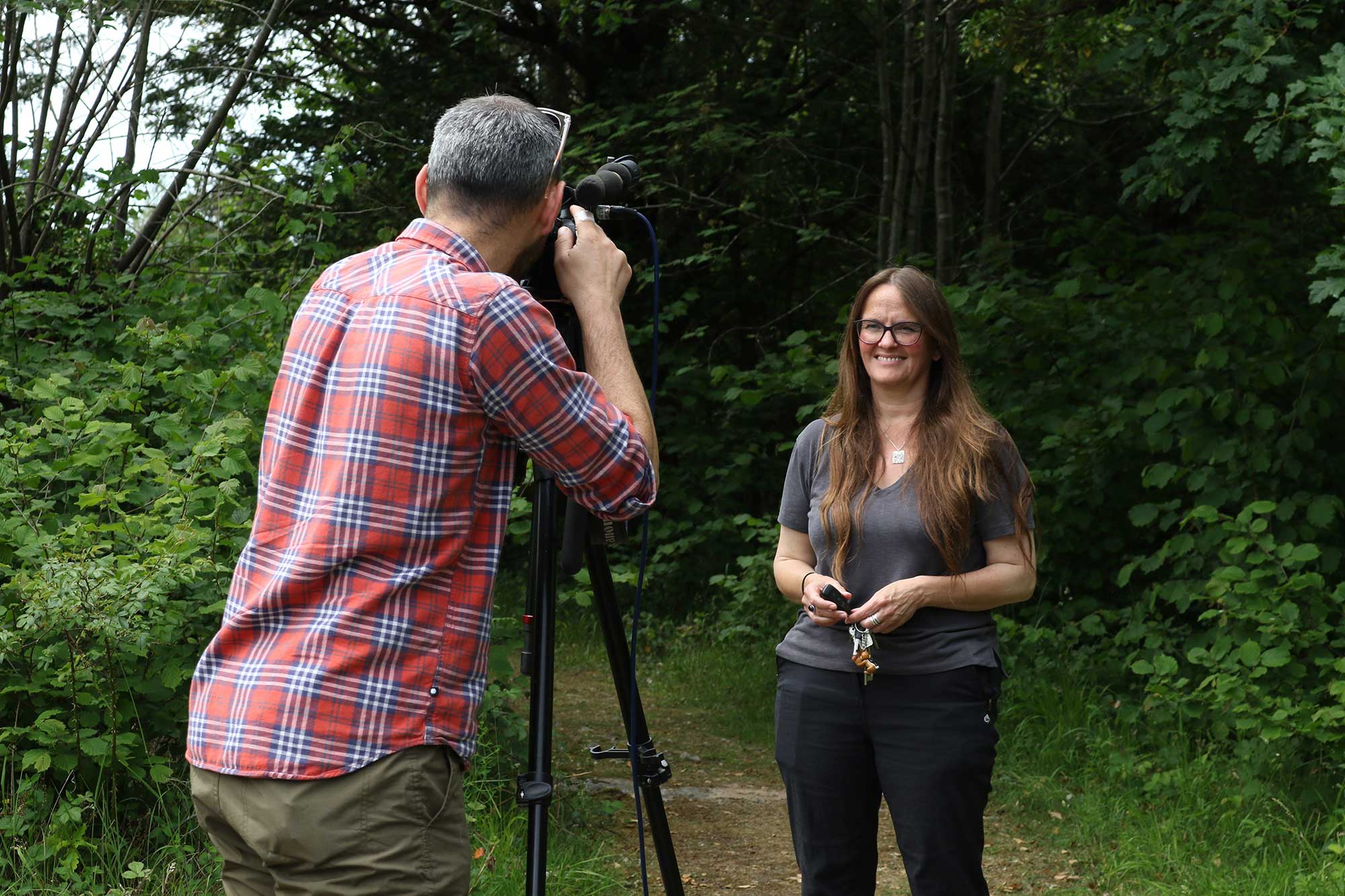Dormice reintroduction June 2021
We were delighted to team up with various partners to release the 1000th hazel dormouse in Lancashire last week. Thirty animals were released into a woodland in the Arnside and Silverdale Area of Outstanding Natural Beauty (a nationally protected landscape covering parts of north Lancashire and south Cumbria).
Reintroductions are crucial to the long-term recovery of many species, but particularly hazel dormice as their decline has been so dramatic. Our first reintroduction took place in 1993, so we are thrilled that this year we’re releasing our 1,000th dormouse. This is a great milestone for conservation and a huge moment for hazel dormice in Lancashire too, as there are no known populations currently living there.
Once in their new home, the dormice were released into large soft-release cages and fed supplementary food whilst they adapted to their new surroundings. They’re fed a mixture of nuts and seeds, fruit and berries. After ten days, small doors are opened at the top of the cages so the dormice are free to leave and explore the woodland. We really hope they’ll breed this summer, increasing the population before hibernation starts this winter. The dormouse population will continue to be monitored by a group of conservation volunteers as part of the National Dormouse Monitoring Programme (NDMP).
As always, this year’s reintroduction would not be possible without months of dedication from all organisations involved, including the Common Dormouse Captive Breeders Group (CDCBG), Wildwood Trust and ZSL (Zoological Society of London). This year, PTES also worked with Natural England and the University of Cumbria, to release the captive-bred animals as part of the ‘Back On Our Map’ (BOOM) Project. Led by the University of Cumbria and Morecambe Bay Partnership and supported by The National Lottery Heritage Fund, BOOM is a multispecies, landscape scale project which aims to reinstate 10 locally threatened or extinct native species back into the area, including hazel dormice.
Debs Brady explains to the media how a dormouse release works
Learn more about the National Dormouse Monitoring Programme (NDMP), and support our work protecting dormice by donating today. Thank you.

